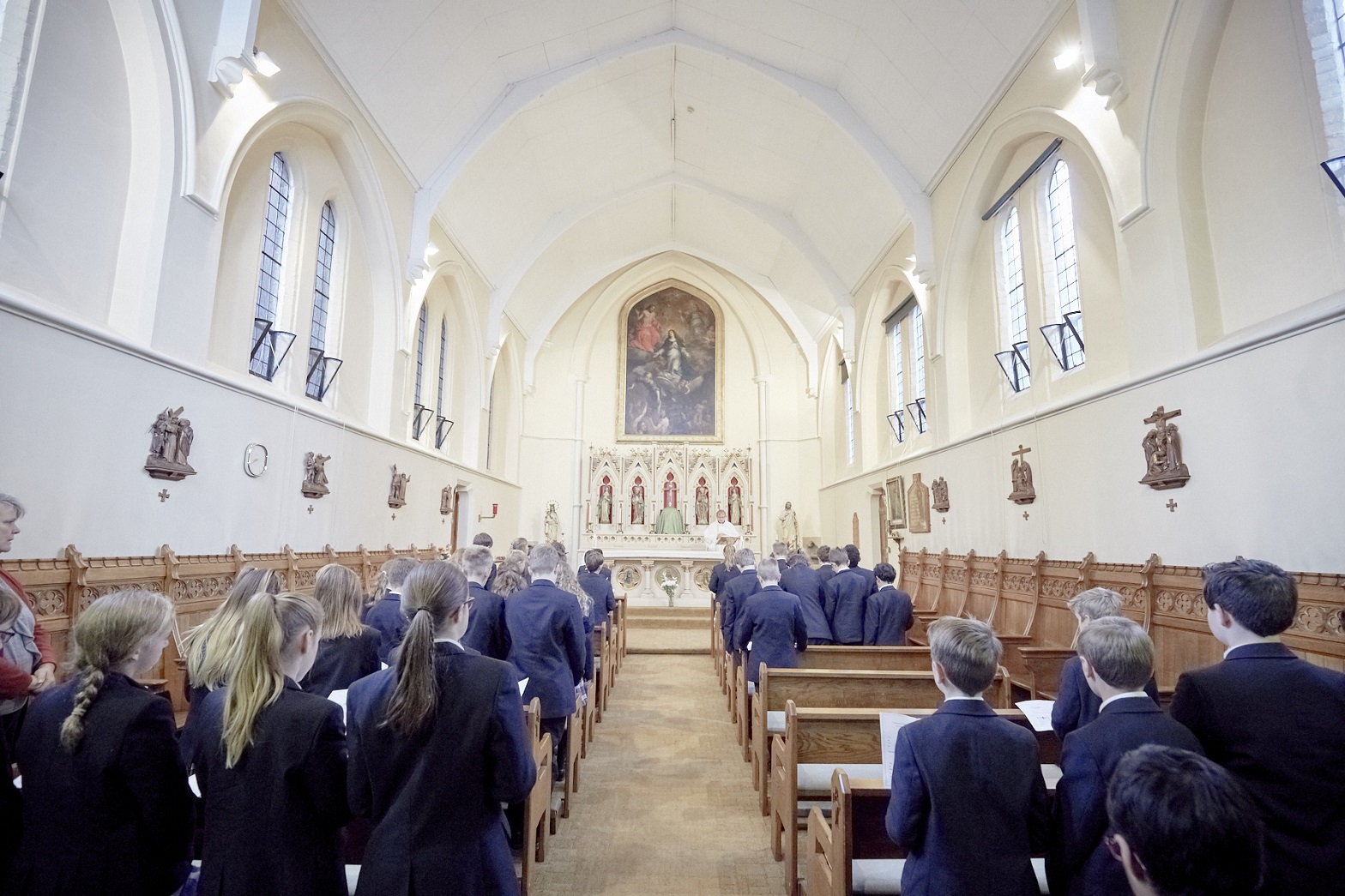Overview of the Religious Studies curriculum at OLA
Religious Studies is a core subject at OLA, underpinning the Catholic ethos and giving pupils an understanding of the Christian faith applicable to the 21st century. The school’s motto is ‘Whatever you do, do it well’ and the Department makes every effort to support each student as an individual and to develop their talents, whatever they are. We therefore echo the words of our foundress, Catherine McAuley, “To each according to their needs”.
We seek to provide a programme of study that nurtures religious literacy, equipping students with the knowledge, understanding and skills – appropriate to their age and capacity – to think and act spiritually, ethically and theologically. We offer opportunities for them to become aware of the demands of religious commitment and the wide range of moral choices that they may encounter in everyday life.
“In a multi-faith society, core values that promote respect for the rights and dignity of every human person are essential for social cohesion. Thus, in Catholic schools, the teaching of religion must help students to arrive at a personal position in religious matters that is consistent and respectful of the position of others, so contributing to their growth and to a more complete understanding of reality.”
Years 7 to 9 Religious Studies
The curriculum promotes a well-developed knowledge and understanding of the beliefs and practices of the Christian faith, through the Catholic tradition. Units of work include What it means to belong to a Catholic School, Creation, The Christian Church, Love and Marriage, Morality (in Y7), The Gospels, Jesus in Art¸ (Y8) and Religion and Ethics (Y9). Y9 also sees the start of GCSE work on Roman Catholic Christianity. The pupils are introduced to beliefs and traditions of the other world faiths. In particular Judaism (in Y7), Islam (in Y8) and Buddhism (in Y9).
Religious Studies is a rigorous academic subject, developing skills of literacy, ICT and encouraging the progressive development of the cognitive skills needed for this subject. These are assessed through the simple acronym IDEAL – Identify, Describe, Explain, Assess and Link.
Religious Studies also gives all students the opportunity and encouragement to develop both spiritually and morally, underpinned by the belief in the essential goodness of each person – made in the image and likeness of God. We encourage pupils to develop an awareness of how to engage with the attitudes and beliefs held by other people. We challenge students to form their own opinions after careful consideration and reasoned thought, whilst emphasising the need to also respect the opinions of others.
The work in Year 7-9 is assessed in various ways to cater for different learning styles and talents; for example: classwork and homework assignments and project work, end of topic tests and an end of year examination usually after the May half term break.
Year 10 and 11 Religious Studies
As a Catholic school we are following the Catholic Bishops’ instruction to follow a course centred on a study of Roman Catholic Christianity and Judaism. However, OLA is proud to welcome students of all faith and none. This new specification focuses on the Catholic faith, but does so in a thematic way, tackling big questions and explicitly comparing the answers of Catholicism with other Christian denominations and secular humanism and atheism. The course thus ensures that those with a religious background can learn to articulate their faith in a secular society; those from other traditions can learn how Catholicism plays a fundamental role in society, whilst exploring their own worldviews and developing valuable, transferable skills for further study.
Trips
Year 7 and Year 10 separately attend the residential retreat at High Leigh in Hertfordshire for three days in the Trinity Term following examinations. This is an opportunity for personal growth. The theme is Valuing Yourself and Others, and pupils have overwhelmingly found this a positive and fun experience.
Route B comprises three components:
1. Foundational Catholic Theology
This component is explored through the themes of:
a) Origins and Meaning
This theme requires pupils to consider religious and non-religious beliefs about the origins and value of the universe and human life. Pupils are expected to make relevant references to scripture, other sources of authority and contrasting scientific and/or nonreligious world-views such as those held by Atheists and Humanists.
b) Good and Evil
This theme requires pupils to consider philosophical questions concerning the origins and nature of good and evil and different religious answers to the problem of evil and suffering. Pupils are expected to make relevant references to scripture and other sources of authority. This theme must also be studied, where appropriate, from the perspective of the Jewish religious tradition.
2. Applied Catholic Theology
This theme is explored through the themes of:
a) Life and Death – including a study of eschatology.
b) Sin and Forgiveness
This theme requires learners to consider philosophical questions concerning the nature of criminality and the rationale for punishment. Through a study of teachings and beliefs, questions relating to the justifiability of capital punishment will be explored.
3. Judaism
This component is an in-depth study of the beliefs and practices of contemporary Judaism.
This course is assessed as follows:
Component 1, Foundational Catholic Theology 37.5% examined at the end of Year 11.
Component 2, Applied Catholic Theology 37.5% examined at the end of Year 11.
Component 3, Judaism 25% examined at the end of Year 11.

